 Through resource nationalism — an attempt by a state to assert greater control over natural resources in its territory through mandates on global extractive industries — host countries seek to create value-added products and services and supply chains or capture assets. Over many decades, the balance of power has slowly shifted in the direction of host states as compared to global corporations. In the short- to medium-term, however, the strength of resource nationalism is likely to ebb and flow with global market cycles and local political cycles. Global geopolitical shifts are another conditioning factor, and China's rise has especially stoked worries in several countries about a loss of sovereignty.
Through resource nationalism — an attempt by a state to assert greater control over natural resources in its territory through mandates on global extractive industries — host countries seek to create value-added products and services and supply chains or capture assets. Over many decades, the balance of power has slowly shifted in the direction of host states as compared to global corporations. In the short- to medium-term, however, the strength of resource nationalism is likely to ebb and flow with global market cycles and local political cycles. Global geopolitical shifts are another conditioning factor, and China's rise has especially stoked worries in several countries about a loss of sovereignty. 6 August 2018
What Explains the Ups and Downs of Resource Nationalism?
 Through resource nationalism — an attempt by a state to assert greater control over natural resources in its territory through mandates on global extractive industries — host countries seek to create value-added products and services and supply chains or capture assets. Over many decades, the balance of power has slowly shifted in the direction of host states as compared to global corporations. In the short- to medium-term, however, the strength of resource nationalism is likely to ebb and flow with global market cycles and local political cycles. Global geopolitical shifts are another conditioning factor, and China's rise has especially stoked worries in several countries about a loss of sovereignty.
Through resource nationalism — an attempt by a state to assert greater control over natural resources in its territory through mandates on global extractive industries — host countries seek to create value-added products and services and supply chains or capture assets. Over many decades, the balance of power has slowly shifted in the direction of host states as compared to global corporations. In the short- to medium-term, however, the strength of resource nationalism is likely to ebb and flow with global market cycles and local political cycles. Global geopolitical shifts are another conditioning factor, and China's rise has especially stoked worries in several countries about a loss of sovereignty. 5 August 2018
Challenges ahead
Dr Farrukh Saleem
History is being re-written. For the first time in Pakistan’s electoral history, a non-dynastic political party will form the government. For the first time in three decades, a political party has won in all four provinces and the Islamabad Capital Territory. For the new PM it will be a crown of thorns; it will be like walking on burning coals. Here are the major challenges he will have to face. $18 billion: Never in Pakistan’s history have we had an $18 billion current account deficit (CAD). What this means is that we are losing $1.5 billion a month. This year’s CAD is 45 percent higher than last year’s. Yes, a mere two years ago our CAD was $4.9 billion. This indeed will be the single biggest challenge for the new PM.
Iran Ramps Up Support to Taliban in Western Afghanistan
By: Abubakar Siddique
During an official visit to Iran in May, Tariq Shah Bahrami, Afghanistan’s defense minister, received assurances that Tehran was fully committed to helping Kabul fight terrorism. It was a welcome guarantee, coming as Afghan forces faced a fresh onslaught from the Taliban, which typically mounts an annual offensive in April. Within months, however, the promise appeared to ring hollow as Afghan officials increasingly blamed Iran for the fighting in Afghanistan’s western Farah province.
A Common Enemy
Speaking after his meeting with Bahrami on May 13, Iranian Army Chief of Staff Mohammad Hossein Baqeri declared that Tehran and Kabul shared a common purpose.
Pakistan Army-PM Imran- A Lethal Combination for India
By Dr Subhash Kapila
Pakistan Army’s propensity for consistently subjecting India to entire spectrum of military conflict and provocations is a documented fact enabled by its conversion of Pakistan as a “Garrison State” to serve its political interests. In that direction, Pakistan Army has ensured that either it gets a PM of its choice to underwrite its adventurism or it effects a regime change of inconvenient Prime Ministers. India in 2018 both geopolitically and militarily is strong to thwart any Pakistan Army military adventurism but gets restrained by its commitments to regional peace and security, unless provoked beyond limits. In terms of South Asian peace it is imperative that Pakistan has Prime Ministers who can be a dampener on Pakistan Army’s military adventurism. Such is not the case in July 2018 when Pakistan Army has imposed a ‘Selected Prime Minister’ in the persona of Imran Khan,
Taliban Surge Routs ISIS in Northern Afghanistan
By Najim Rahim and Rod Nordland
 MAZAR-I-SHARIF, Afghanistan — More than 200 Islamic State fighters and their two top commanders surrendered to the Afghan government on Wednesday to avoid capture by Taliban insurgents, after a two-day battle that was a decisive victory for the Taliban, participants on all sides confirmed.One of the Islamic State commanders, Mufti Nemat, was reached by cellphone after his surrender, and he confirmed that he and 200 to 250 of his fighters had turned themselves in to the government after the battle in northern Afghanistan, in which 40 of his insurgents had been killed by the Taliban. “It was a dark night, a pell-mell situation,” he said. “For two to three nights, we have been unable to sleep; we are very exhausted.”
MAZAR-I-SHARIF, Afghanistan — More than 200 Islamic State fighters and their two top commanders surrendered to the Afghan government on Wednesday to avoid capture by Taliban insurgents, after a two-day battle that was a decisive victory for the Taliban, participants on all sides confirmed.One of the Islamic State commanders, Mufti Nemat, was reached by cellphone after his surrender, and he confirmed that he and 200 to 250 of his fighters had turned themselves in to the government after the battle in northern Afghanistan, in which 40 of his insurgents had been killed by the Taliban. “It was a dark night, a pell-mell situation,” he said. “For two to three nights, we have been unable to sleep; we are very exhausted.”Imran Khan's Victory in Pakistan Could Bring Stability. But at What Cost?
By IAN BREMMER
Last week, Pakistanis selected the world’s latest celebrity-turned-political leader, voting for former cricket star Imran Khan to become the next prime minister. Being a political player in Pakistan is not for the faint of heart; in the seven decades since independence, Pakistan has successfully transferred power from one democratically-elected government to another just once; Khan will be the second. The Oxford-educated Khan rose to fame as a cricketer during the 80’s and 90’s, where he also developed a reputation as something of a playboy. But as he moved further away from his playing days, he moved closer to Islam and politics, founding the Pakistan Justice Party (PTI) in 1996. For nearly two decades, Khan’s party didn’t do very much on the political scene, though Khan used his platform to relentlessly criticize Pakistan’s notoriously corrupt political system. The consistency—and ferocity—of that anti-corruption message finally pushed him and his party to a political breakthrough in July.
Making Sense of Russia’s Involvement in Afghanistan
By Nicholas Trickett
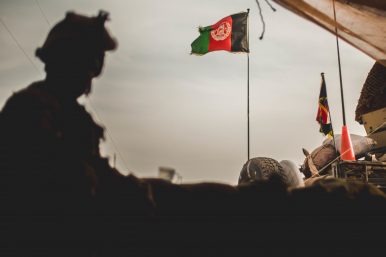 Much of the current analysis of Russia’s involvement in Afghanistan and engagement with the Taliban has come out of an unfortunate formula. First, Afghanistan is reduced to an arena in which external great powers jockey for influence and power. U.S. government statements about Russian support for the Taliban are then accepted at face value without parsing what exactly is being communicated. Russian denials are then assumed to evidence Russian involvement and, finally, assumed to prove that Russia aims to undermine the United States abroad.
Much of the current analysis of Russia’s involvement in Afghanistan and engagement with the Taliban has come out of an unfortunate formula. First, Afghanistan is reduced to an arena in which external great powers jockey for influence and power. U.S. government statements about Russian support for the Taliban are then accepted at face value without parsing what exactly is being communicated. Russian denials are then assumed to evidence Russian involvement and, finally, assumed to prove that Russia aims to undermine the United States abroad.No Need to Engage Imran Khan Prematurely
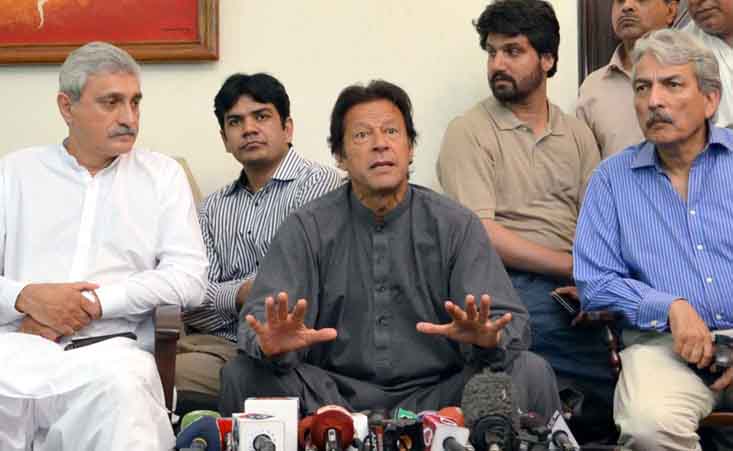 The coverage that the Pakistani elections has received in our media has been out of proportion to our stakes in its outcome. Of course, the election process in a neighbouring country like Pakistan, with which our relations remain most difficult, should not be ignored. But the coverage here was excessive when one knows that whatever be the result, India-Pakistan ties will continue in the groove they are in. This degree of media attention also gives undeserved importance and credibility to the democratic process in Pakistan.
The coverage that the Pakistani elections has received in our media has been out of proportion to our stakes in its outcome. Of course, the election process in a neighbouring country like Pakistan, with which our relations remain most difficult, should not be ignored. But the coverage here was excessive when one knows that whatever be the result, India-Pakistan ties will continue in the groove they are in. This degree of media attention also gives undeserved importance and credibility to the democratic process in Pakistan.Xi’s Grip Loosens Amid Trade War Policy Paralysis
By: Willy Wo-Lap Lam
A spate of unusual reports in Hong Kong and overseas Chinese-language media lend credence to the idea that, while Xi Jinping remains China’s undisputed paramount, his authority seems somewhat diminished. A moratorium of sorts appears to have been called on the relentless personality cult constructed around Xi, while signs have emerged that China’s economic policymaking apparatus has been hamstrung by disagreements between Xi and his top economic policymaker over how to handle a deepening trade war with the United States. While the trade war appears to have applied enough pressure to China’s political system to open space for criticism of Xi’s leadership style and tactics, it is unlikely that Xi’s position atop China’s political hierarchy is in any serious danger.
Signs of Dissent
Censorship, Geopolitical Time Bombs, and China’s Islamophobia Problem
By: Matt Schrader
China has a serious and worsening Islamophobia problem. While relations between China’s Muslim minorities and its Han majority have been fraught since 2009’s deadly inter-ethnic riots in the far western city of Urumqi, recent years have seen the normalization of online hate speech directed at Muslims. The rise of Islamophobia inside China is a product both of government action, and of the government’s failure to act. Commentary on the recent death of a prominent Muslim leader in the western province of Qinghai highlights the extent to which the situation has deteriorated, and suggests the ways in which China’s warped online discourse could blunt its efforts to build influence and win friends in countries across the Muslim world.
The Death of an Imam
Stronger but With Enduring Weaknesses: China’s Military Turns 91
By Adam Ni
The People’s Liberation Army turned 91 today amid the Chinese media’s self-congratulatory cacophony. To be sure, China has a lot to be proud of—the PLA has become one of the most powerful militaries in the world. But lost in the hyperbole and hubris of the occasion is a sense of perspective. The PLA continues to be plagued by enduring weaknesses and significant challenges on the long journey towards its aspirations. What are those aspirations? At the 19th Communist Party Congress in October 2017, Xi Jinping committed China to an ambitious agenda. The PLA is to be transformed into a ‘world-class force’ by mid-century, with mechanisation to be completed by 2020 and modernisation to be completed by 2035.
China and Laos' Dam Disaster
By Shannon Tiezzi
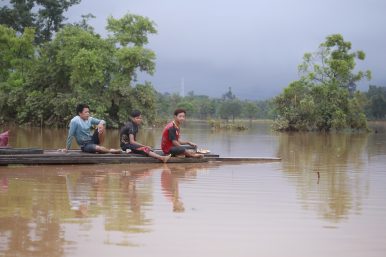 Last week, a dam collapse in Laos’ Attapeu province caused a devastating flood. While the death count is still uncertain – in part because the Lao government is keeping information under tight wraps – reports indicate that hundreds are missing. On the surface, the incident had nothing to do with China, Laos’ neighbor to the north. Chinese companies were not involved in the project in question, the Xepian Xe-Namnoy dam, and China’s Foreign Ministry has said there are no reports of Chinese casualties. However, China’s response to the disaster is still important – both for China’s image in Laos and the broader region, and for the potential implications this disaster could have on Chinese projects.
Last week, a dam collapse in Laos’ Attapeu province caused a devastating flood. While the death count is still uncertain – in part because the Lao government is keeping information under tight wraps – reports indicate that hundreds are missing. On the surface, the incident had nothing to do with China, Laos’ neighbor to the north. Chinese companies were not involved in the project in question, the Xepian Xe-Namnoy dam, and China’s Foreign Ministry has said there are no reports of Chinese casualties. However, China’s response to the disaster is still important – both for China’s image in Laos and the broader region, and for the potential implications this disaster could have on Chinese projects.Estimating Taiwanese Military Power
By Ian Easton
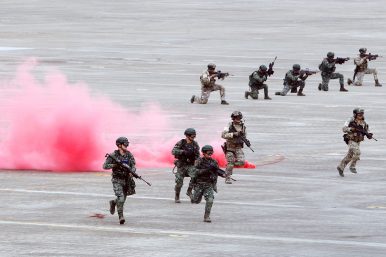 As tensions continue to rise across the Taiwan Strait, it becomes increasingly important to analyze the state of Taiwan’s defense readiness. What would happen if China attacked? Could Taiwan’s military prevail? In what areas are the island nation’s defense capabilities the strongest? Where are they the weakest? And what can Taiwan’s government do to bolster its military power? Any estimate of military power will necessarily rely on guesswork. Even the most cursory review of history shows that war is far too complex to predict with any certainty. Surprise and chance are the most enduring features of human conflict. Moreover, in this case, the fighting qualities of the Taiwanese armed forces are unknown because they have never been put to the test.
As tensions continue to rise across the Taiwan Strait, it becomes increasingly important to analyze the state of Taiwan’s defense readiness. What would happen if China attacked? Could Taiwan’s military prevail? In what areas are the island nation’s defense capabilities the strongest? Where are they the weakest? And what can Taiwan’s government do to bolster its military power? Any estimate of military power will necessarily rely on guesswork. Even the most cursory review of history shows that war is far too complex to predict with any certainty. Surprise and chance are the most enduring features of human conflict. Moreover, in this case, the fighting qualities of the Taiwanese armed forces are unknown because they have never been put to the test.China-ASEAN Negotiations on Code of Conduct for the South China Sea
 It has been reported in the media that China and the ten ASEAN countries have agreed on a single draft of a negotiating text for a Code of Conduct (COC) in the South China Sea (SCS). The formal announcement may be made soon. Negotiations on COC will happen in the next few weeks and months. Thus it would appear that China has been successful in controlling the fall out of the verdict of the Permanent Court of Arbitration (PCA) in 2016 by working on the contradictions within the ASEAN and also showing the ASEAN that they have little alternative but to accept China’s position and manage their relationships with China.
It has been reported in the media that China and the ten ASEAN countries have agreed on a single draft of a negotiating text for a Code of Conduct (COC) in the South China Sea (SCS). The formal announcement may be made soon. Negotiations on COC will happen in the next few weeks and months. Thus it would appear that China has been successful in controlling the fall out of the verdict of the Permanent Court of Arbitration (PCA) in 2016 by working on the contradictions within the ASEAN and also showing the ASEAN that they have little alternative but to accept China’s position and manage their relationships with China.
Background
The Islamic State Threat Hasn’t Gone Away
by Michael P. Dempsey
 Why it matters: Like the mythological hydra, the Islamic State has remained resilient and lethal, even after losing its physical caliphate in Iraq and Syria last year—continuing to thrive in areas without local authority and legitimacy and to recruit from vulnerable Sunni populations. Equally worrisome, the recent attacks demonstrate the group’s ability to retain its followers; in the year since the fall of Raqqa, no Islamic State branch has renounced its pledge of fealty.
Why it matters: Like the mythological hydra, the Islamic State has remained resilient and lethal, even after losing its physical caliphate in Iraq and Syria last year—continuing to thrive in areas without local authority and legitimacy and to recruit from vulnerable Sunni populations. Equally worrisome, the recent attacks demonstrate the group’s ability to retain its followers; in the year since the fall of Raqqa, no Islamic State branch has renounced its pledge of fealty.When It Comes to Cyberattacks, Iran Plays the Odds
By Ben West
 While Iran is capable of carrying out conventional military action, cyberspace is the more likely theater for its current conflict with the United States. Iran's cyber threat groups tend to use unsophisticated yet tried-and-true tactics while targeting many individuals. Awareness, knowledge and preparation are the best tools to defend against such tactics. The war of words between the United States and Iran appears to be heating up in cyberspace. In recent weeks, the tension has grown palpable as the United States leads the drive to reimpose sanctions on Iran beginning Aug. 6. U.S. President Donald Trump and Secretary of State Mike Pompeo have traded heated threats with Iranian President Hassan Rouhani and Maj. Gen. Qassem Soleimani, the leader of the Islamic Revolutionary Guard Corps' Quds Force.
While Iran is capable of carrying out conventional military action, cyberspace is the more likely theater for its current conflict with the United States. Iran's cyber threat groups tend to use unsophisticated yet tried-and-true tactics while targeting many individuals. Awareness, knowledge and preparation are the best tools to defend against such tactics. The war of words between the United States and Iran appears to be heating up in cyberspace. In recent weeks, the tension has grown palpable as the United States leads the drive to reimpose sanctions on Iran beginning Aug. 6. U.S. President Donald Trump and Secretary of State Mike Pompeo have traded heated threats with Iranian President Hassan Rouhani and Maj. Gen. Qassem Soleimani, the leader of the Islamic Revolutionary Guard Corps' Quds Force.Ukraine’s Defense Industry Slowly Moves Toward Adopting NATO Standards
By: Oleg Varfolomeyev
Ukraine has begun mass producing ammunition for 40-millimeter automatic grenade launchers, the state defense industry monopoly Ukroboronprom recently announced. This caliber is widely used by the militaries of North Atlantic Treaty Organization (NATO) member states; whereas, the Ukrainian Armed Forces have, thus far, utilized mainly 30-millimeter ammunition for their grenade launchers. Ukroboronprom said the new ammunition, which corresponds to NATO standards, is being manufactured jointly by the Shostka-based state-controlled Impuls plant and the Kyiv-based Kuznya na Rybalskomu (Ukroboronprom.com.ua, July 18). The latter is part of the business empire of President Petro Poroshenko.
Russia’s New PMC Patriot: The Kremlin’s Bid for a Greater Role in Africa?
By: Sergey Sukhankin
The All-Russian Officers’ Assembly, a national war veterans’ organization, published a document, on July 5, urging government officials to legalize so-called Private Military Companies (PMC). The document was signed by Colonel General (ret.) Leonid Ivashov (the president of the Academy for Geopolitical Problems), Colonel (ret.) Vladimir Petrov, and the ataman (head) of the “Khovrino” Cossack community, Evgeni Shabaev. The petitioners underscored the contradictory visible mismatch between Russian PMCs being technically illegal, while their members “[receive] medals and signs of military distinction from the Russian state” (Newsrbk.ru, July 6).
Specific demands outlined in the document include the following (Svoboda.org, July 6):
Financial Woes Rattle the United Nations
by Daniel R. DePetris
It’s not an especially pleasant time to be a bureaucrat at the United Nations.
 Those of us outside of Turtle Bay like to make fun of the United Nations as a ginormous, bloated, ineffective organization that sucks up $600 million of U.S. taxpayer money every year. UN-bashing has been a favorite pastime for Republicans, particularly the more hard-line fiscal hawks within the party who are always trying to cut costs in order to lessen the deficit. Indeed, some GOP members of Congress have even introduced bills pulling the United States out of the United Nations completely. And at times, it appears as if Nikki Haley, the current U.S. ambassador in New York, would rather be doing something else with her time than sitting in the Security Council chamber and dealing with perpetual obstructionism from the Russians and Chinese.
Those of us outside of Turtle Bay like to make fun of the United Nations as a ginormous, bloated, ineffective organization that sucks up $600 million of U.S. taxpayer money every year. UN-bashing has been a favorite pastime for Republicans, particularly the more hard-line fiscal hawks within the party who are always trying to cut costs in order to lessen the deficit. Indeed, some GOP members of Congress have even introduced bills pulling the United States out of the United Nations completely. And at times, it appears as if Nikki Haley, the current U.S. ambassador in New York, would rather be doing something else with her time than sitting in the Security Council chamber and dealing with perpetual obstructionism from the Russians and Chinese.Urban-rural splits have become the great global divider
Urban-rural splits have become the great global divider A political phenomenon is pitting metropolitan elites against small-town populists GIDEON RACHMAN Add to myFT © Efi Chalikopoulou Share on Twitter (opens new window) Share on Facebook (opens new window) Share on LinkedIn (opens new window) Save Save to myFT Gideon Rachman JULY 30, 2018 Print this page310 The struggle to understand the Trump phenomenon has created a small library of books about Middle America. But it might be just as useful to look at Thailand or Turkey. For the rise of the US president is part of a political phenomenon — visible all over the world — that is pitting “metropolitan elites” against pitchfork-wielding populists based in small towns and the countryside.
The US is at Risk of Losing a Trade War with China
JOSEPH E. STIGLITZ
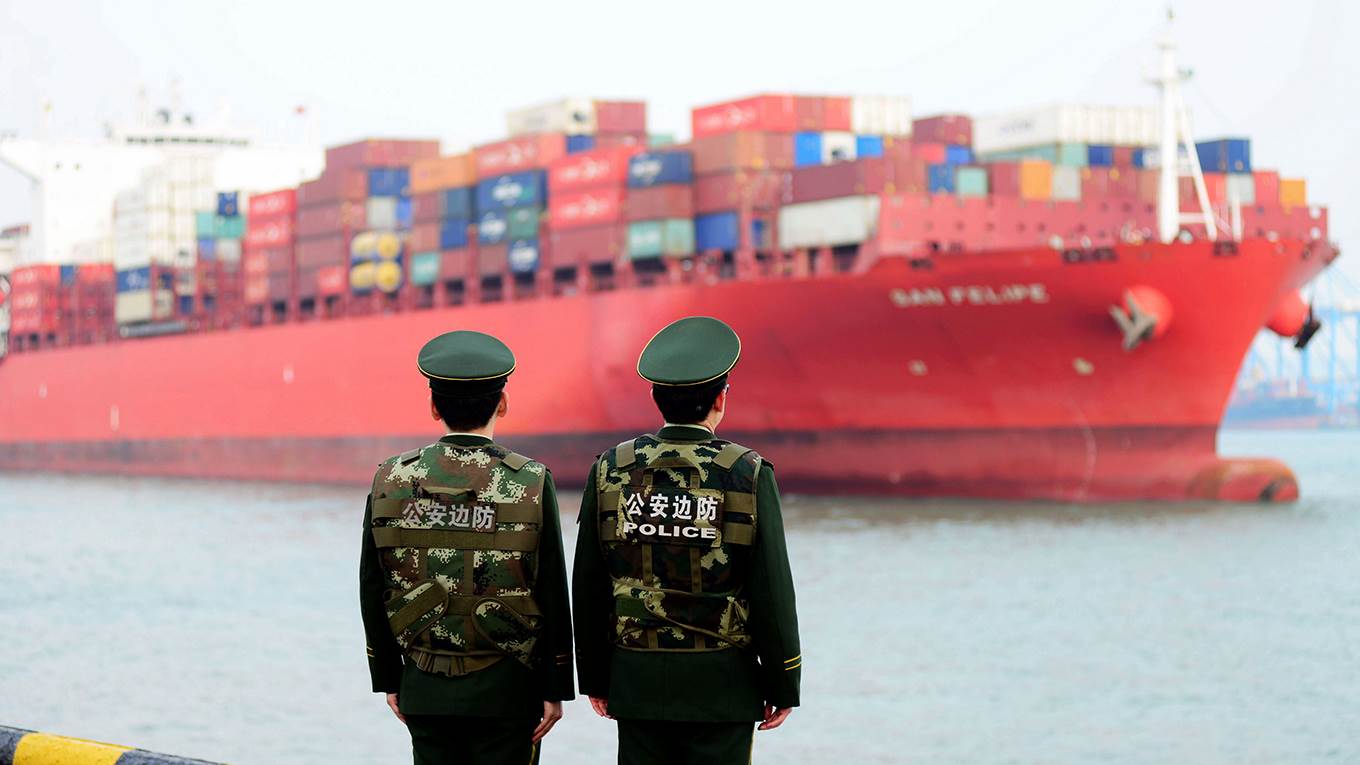 The “best” outcome of President Donald Trump’s narrow focus on the US trade deficit with China would be improvement in the bilateral balance, matched by an increase of an equal amount in the deficit with some other country (or countries). In fact, significantly reducing the bilateral trade deficit will prove difficult. NEW YORK – What was at first a trade skirmish – with US President Donald Trump imposing tariffs on steel and aluminum – appears to be quickly morphing into a full-scale trade war with China. If the truce agreed by Europe and the US holds, the US will be doing battle mainly with China, rather than the world (of course, the trade conflict with Canada and Mexico will continue to simmer, given US demands that neither country can or should accept).
The “best” outcome of President Donald Trump’s narrow focus on the US trade deficit with China would be improvement in the bilateral balance, matched by an increase of an equal amount in the deficit with some other country (or countries). In fact, significantly reducing the bilateral trade deficit will prove difficult. NEW YORK – What was at first a trade skirmish – with US President Donald Trump imposing tariffs on steel and aluminum – appears to be quickly morphing into a full-scale trade war with China. If the truce agreed by Europe and the US holds, the US will be doing battle mainly with China, rather than the world (of course, the trade conflict with Canada and Mexico will continue to simmer, given US demands that neither country can or should accept).Google, Seeking a Return to China, Is Said to Be Building a Censored Search Engine
By Li Yuan
 HONG KONG — Google withdrew from China eight years ago to protest the country’s censorship and online hacking. Now, the internet giant is working on a censored search engine for China that will filter websites and search terms that are blacklisted by the Chinese government, according to two people with knowledge of the plans. Google has teams of engineers working on a search app that restricts content banned by Beijing, said the people, who asked for anonymity because they were not permitted to speak publicly about the project. The company has demonstrated the service to Chinese government officials, they added.
HONG KONG — Google withdrew from China eight years ago to protest the country’s censorship and online hacking. Now, the internet giant is working on a censored search engine for China that will filter websites and search terms that are blacklisted by the Chinese government, according to two people with knowledge of the plans. Google has teams of engineers working on a search app that restricts content banned by Beijing, said the people, who asked for anonymity because they were not permitted to speak publicly about the project. The company has demonstrated the service to Chinese government officials, they added.Technological Fluency 2035 – 2050
Howard R. Simkin
This article is the latest addition to the U.S. Army TRADOC G2 Mad Scientist Initiative’s Future of Warfare 2030-2050 project at Small Wars Journal.
“The Future is already here. It’s just not very evenly distributed.”
-- William Gibson, science fiction author who coined the word cyberspace in 1984.[1]
Purpose
This paper examines the term technological fluency as it applies to future Special Operations Forces (SOF) in the 2030 – 2050 timeframe. It begins with a proposed definition. It then shapes the discussion with the following questions. What does the Future Operating Environment (FOE) tell us? How might SOF Operators acquire such fluency? What are the long term implications for SOF? It concludes with an operational vignette.
WhatsApp's Fake News Problem Has Turned Deadly in India. Here's How to Stop It
By CIARA NUGENT
On the evening of June 8, a 29 year-old sound engineer and a 30-year-old business man were on their way to a picnic spot in India’s northeastern Assam state when they stopped at a village to ask for directions. The villagers had been told, in a video circulating on the messaging app WhatsApp, that child kidnappers were roaming the country. Believing these strangers were the ones they’d been warned about, the villagers formed a large mob, and, before the men could convince them otherwise, beat them to death.
Drones Are Here to Stay. Get Used to It
By Alex Fitzpatrick
 When Hurricane Maria hit Puerto Rico last September, it ravaged the island’s electrical grid and communications systems. For weeks, many of the approximately 5 million Puerto Ricans living in the mainland U.S. were unable to reach their loved ones. While recovery groups worked to restore power and deliver aid, cell providers scrambled to repair their networks. To get its service back up and running, AT&T tried something new: the Flying COW, a tethered drone that beamed mobile data signals up to 40 miles in all directions.
When Hurricane Maria hit Puerto Rico last September, it ravaged the island’s electrical grid and communications systems. For weeks, many of the approximately 5 million Puerto Ricans living in the mainland U.S. were unable to reach their loved ones. While recovery groups worked to restore power and deliver aid, cell providers scrambled to repair their networks. To get its service back up and running, AT&T tried something new: the Flying COW, a tethered drone that beamed mobile data signals up to 40 miles in all directions.Balancing Big Data and privacy
Rahul Matthan
 One of the most exciting promises that the Justice Srikrishna Committee held out was that the data protection framework it suggested would protect individual privacy while ensuring that the digital economy flourished. It claimed that in doing so it would chart a path distinct from the US, the European Union and China, one that was finely tuned to the new digital economy. If it was going to deliver on this, its biggest challenge was going to be designing its privacy framework to address both the promises and challenges of Artificial Intelligence and Big Data.
One of the most exciting promises that the Justice Srikrishna Committee held out was that the data protection framework it suggested would protect individual privacy while ensuring that the digital economy flourished. It claimed that in doing so it would chart a path distinct from the US, the European Union and China, one that was finely tuned to the new digital economy. If it was going to deliver on this, its biggest challenge was going to be designing its privacy framework to address both the promises and challenges of Artificial Intelligence and Big Data.Thoughts on Military Education, Training and Leader Development in 2050
Jim Greer
This article is the latest addition to the U.S. Army TRADOC G2 Mad Scientist Initiative’s Future of Warfare 2030-2050 project at Small Wars Journal.
Introduction
Today, in the summer of 2018, 2050 is only 32 years from now. As we explore education and training for 2050, perhaps we should reflect on where we were 32 years ago in 1986. In 1986, education was conducted in two forms: the brick and mortar schoolhouse and distance learning via lessons and tests that were mailed “snail-mail” to/from the schoolhouse to military members around the world. The first military education institution to connect to DARPAnet, the forerunner of the internet, the United States Military Academy at West Point, was just connecting to the few labs and other institutions “on-line.” Video and audio was employed in education via cassette tapes and TVs, which could be hard-wire connected across several classrooms. Learning management systems (LMS) consisted of rudimentary computer programs to record grades and schedule classes. Individual learners were connected only by land-line telephone and the U.S. Mail.
Terrorism is Still a Problem. It Has Not Gone Away.
J. Robert Kane
Introduction
Since late 2001, counterterrorism has been the foremost national security initiative of the U.S. government. More has been invested in counterterrorism responses than any other level of national security or military operations to include combating aggressions from near-peer threats. [1] President Bush declared a ‘War on Terror’ and it has been a war we have waged as a country ever since and without making any empirical play towards victory. [2] President Obama called the war over but the conflict and U.S. involvement has not ended. [3] The problem may be that we just may not have learned the lessons that we were taught of the past 17 years.
Cutting Their Teeth or Tying Their Hands?: Northwest Frontier Tactics and World War, 1897 – 1945
Gil Barndollar
Perhaps no army in history has ever juggled as wide and challenging an array of campaigns and conditions as the British Army did from 1897 to 1945. Battling enemies from Burma to Belgium, the British Army rapidly transformed itself from a small imperial constabulary to a war-winning conscript mass army, shrank back almost overnight, and then repeated the trick barely twenty years later. Through it all, from the height of empire to the Pyrrhic victory of the Second World War, one of the army’s few constants was ceaseless mountain warfare on the Northwest Frontier of India.
Go four before grunt: The controversial idea posed by Mattis’ task force adviser
/arc-anglerfish-arc2-prod-mco.s3.amazonaws.com/public/UDIUQLCPRVFVJIU2NUAVUF5QRI.jpg) There’s a controversial idea taking root at the Pentagon: That Marines should wait an enlistment before joining the infantry, coming into traditional rifle squads only after getting some experience in another career field. It would be a profound change that would make Marine infantry units older, but potentially stacked with additional skill sets. It would also further blur the line between conventional infantry Marine and special operator, as they’d be plucked from the same pool.
There’s a controversial idea taking root at the Pentagon: That Marines should wait an enlistment before joining the infantry, coming into traditional rifle squads only after getting some experience in another career field. It would be a profound change that would make Marine infantry units older, but potentially stacked with additional skill sets. It would also further blur the line between conventional infantry Marine and special operator, as they’d be plucked from the same pool.4 August 2018
Faced by rank disparity, Indian Army plans to remove brigadiers
By PRAKASH KATOCH
The Indian Army is actively considering abolishing the rank of brigadier as part of its plans to restructure the officer cadre. It reasons that this will provide younger commanders, which is absurd; colonels promoted to major-general (instead of brigadier) but commanding brigades will be at the same age. But the question is, where will all this stop? Will a subsequent cadre restructuring after another decade recommend brigades to be commanded by lieutenant-generals? In the past, colonels in the infantry were directly promoted as brigadiers. Those promoted as colonels commanded regimental centers and went home. Later, the lieutenant rank was abolished, which buried the concept of a senior subaltern. Colonels, instead of lieutenant-colonels, started commanding battalions, while the latter commanded infantry companies.
Is India the Weakest Link in the Quad?
by Derek Grossman
Since the Trump administration's announcement that it seeks a “free and open” Indo-Pacific, observers have spilled much ink on the revival of the Quadrilateral Security Dialogue, or Quad, to achieve this objective. The Quad—an informal consultative mechanism comprising the United States, Australia, Japan, and India—is quietly opposed to China's continued militarization of and attempts to control strategic waterways throughout the region, namely the South China Sea. The group met most recently last November, and again in June, after 10 years of inactivity. But the fate of the Quad is still fragile. Indeed, the first attempt at the Quad died on the vine because then-Australian Prime Minister Kevin Rudd withdrew over concerns that the Quad needlessly antagonized China. Today, however, following a burst of concern about Chinese influence, Australia is all in. So are the United States and Japan. That leaves India, where New Delhi may be getting cold feet.
Imran Khan’s Shine Won’t Last as Pakistan’s Prime Minister
BY MICHAEL KUGELMAN
 Playing before a crowd of nearly 90,000 people on a pitch in Australia, Pakistan’s national cricket team defeated England to win the sport’s world cup. For the first time in its 45-year existence, cricket-mad Pakistan was the champion of the world. Back home, euphoric Pakistanis poured out of their homes to celebrate. It was, in the words of cricket writer Mohammad Ramis, “the jubilation of their lives.” Pakistan’s squad was led by 40-year-old team captain Imran Khan, a star batter and bowler then in the twilight of an illustrious career. Fast-forward to today. Khan, now a star politician, is poised to become Pakistan’s next prime minister after his Pakistan Tehreek-e-Insaf (PTI) party triumphed in elections last week.
Playing before a crowd of nearly 90,000 people on a pitch in Australia, Pakistan’s national cricket team defeated England to win the sport’s world cup. For the first time in its 45-year existence, cricket-mad Pakistan was the champion of the world. Back home, euphoric Pakistanis poured out of their homes to celebrate. It was, in the words of cricket writer Mohammad Ramis, “the jubilation of their lives.” Pakistan’s squad was led by 40-year-old team captain Imran Khan, a star batter and bowler then in the twilight of an illustrious career. Fast-forward to today. Khan, now a star politician, is poised to become Pakistan’s next prime minister after his Pakistan Tehreek-e-Insaf (PTI) party triumphed in elections last week.CNBC Exclusive: CNBC Transcript: U.S. Secretary of State Mike Pompeo Speaks with CNBC’s Michelle Caruso-Cabrera Today
All references must be sourced to CNBC.
MICHELLE CARUSO-CABRERA: The president during his news conference with the prime minister of Italy said he would meet with the president of Iran with no preconditions. Are you onboard with that? Is that a good idea? MIKE POMPEO: I am, indeed. We-- we've said this before. We-- we-- the President wants to meet with folks to solve problems. If the Iranians demonstrate a commitment to make fundamental changes in how they treat their own people-- reduce their maligned behavior, can agree that it's worthwhile to-- enter in a nuclear agreement that actually prevents proliferation, then the president said he's prepared to sit down and have a conversation with him.
Bailing out Pakistan
By Jed Babbin
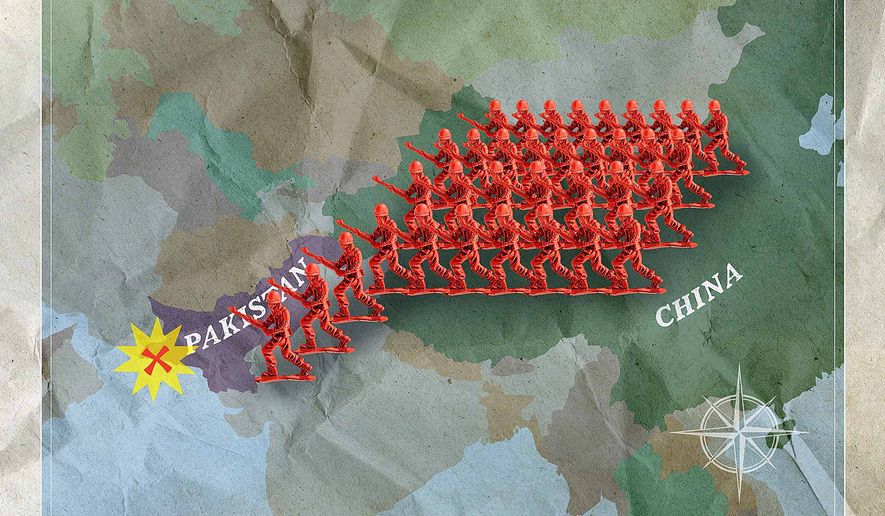 Nuclear-armed Pakistan is not a model of stability. It just elected a new prime minister after a campaign that featured widespread violence and election day bombings. The apparent loser has alleged vote-rigging in favor of his opponent, who was supported by the omnipresent Pakistani army. That’s one half of the context in which the International Monetary Fund (IMF) will soon consider another financial bailout for Pakistan, which has benefited from a dozen of them since the 1980s. The other half is the fact that Pakistan’s economy is in shambles due to large-scale corruption and a growing debt crisis. The money it owes other nations and non-Pakistani entities is more than 30 percent of its GDP partly because of the extensive loans it has received from China to build parts of CPEC, the China-Pakistan Economic Corridor, by which China is building roads, power plants, railroads and military bases in Pakistan.
Nuclear-armed Pakistan is not a model of stability. It just elected a new prime minister after a campaign that featured widespread violence and election day bombings. The apparent loser has alleged vote-rigging in favor of his opponent, who was supported by the omnipresent Pakistani army. That’s one half of the context in which the International Monetary Fund (IMF) will soon consider another financial bailout for Pakistan, which has benefited from a dozen of them since the 1980s. The other half is the fact that Pakistan’s economy is in shambles due to large-scale corruption and a growing debt crisis. The money it owes other nations and non-Pakistani entities is more than 30 percent of its GDP partly because of the extensive loans it has received from China to build parts of CPEC, the China-Pakistan Economic Corridor, by which China is building roads, power plants, railroads and military bases in Pakistan.
Subscribe to:
Posts (Atom)
